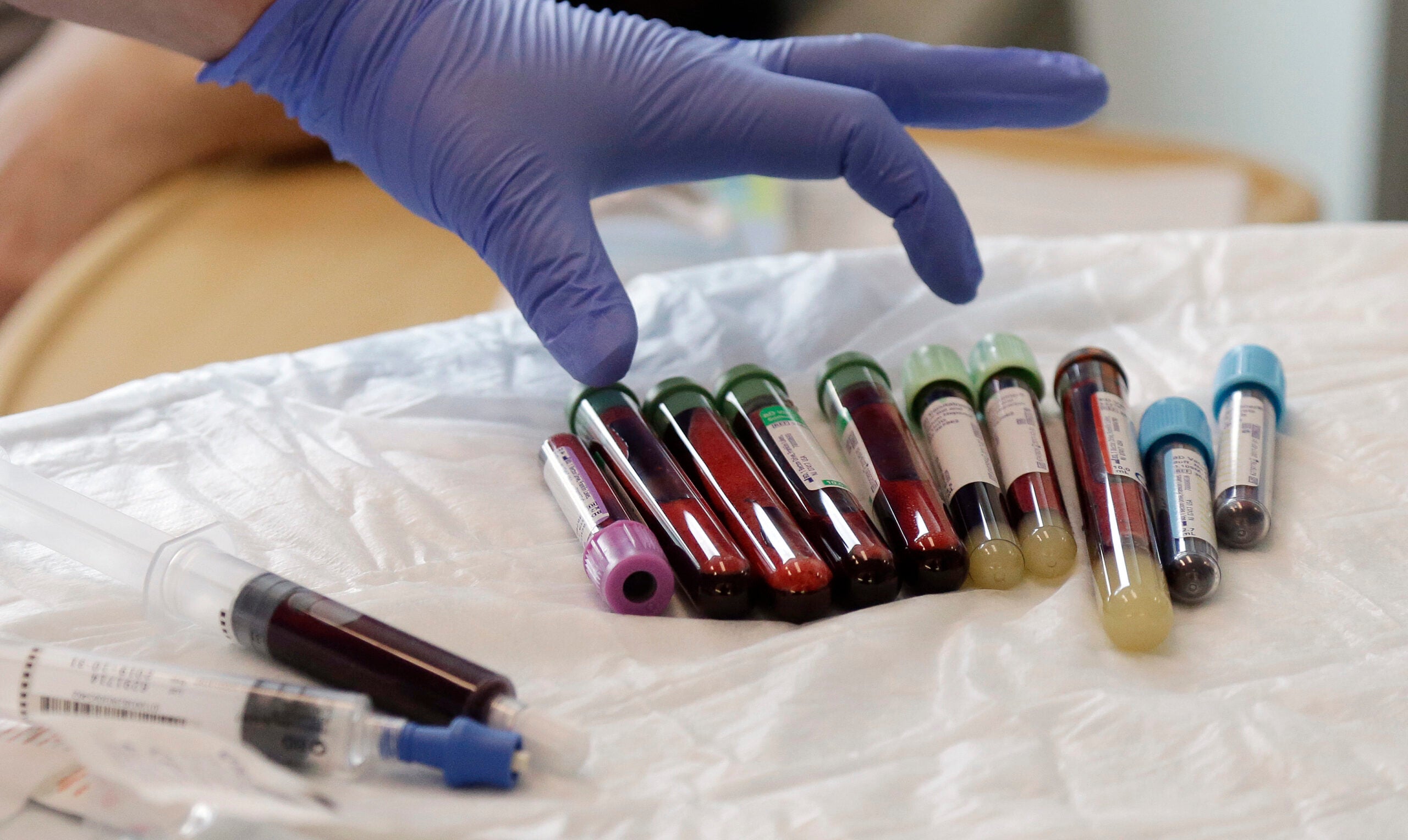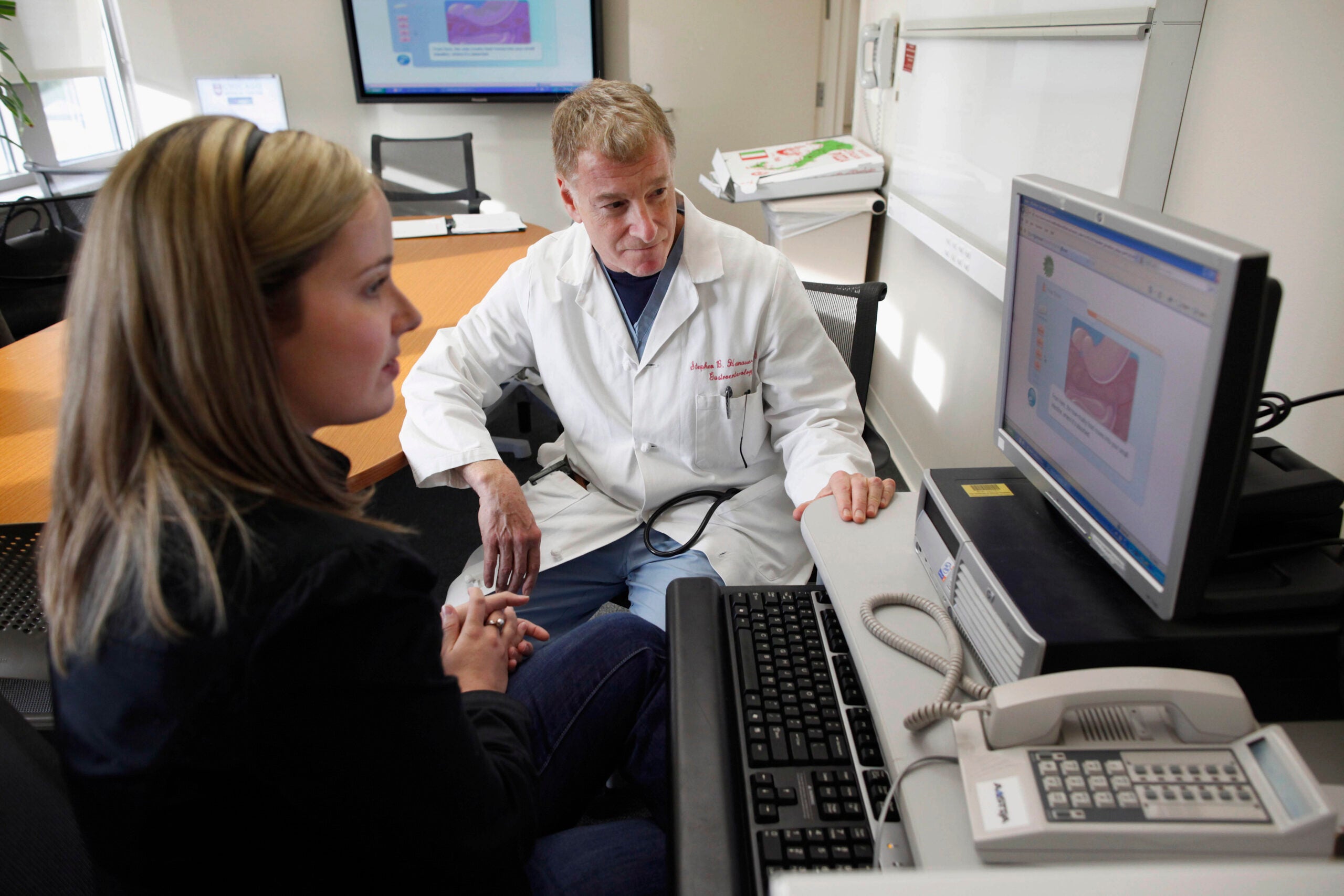According to the American Cancer Society, over one million people are estimated to be diagnosed with cancer this year. Learn how to handle the journey from diagnosis to treatment in a book called, “After You Hear It’s Cancer: A Guide to Navigating the Difficult Journey Ahead.”
Featured in this Show
-
Health Care Consultant's New Book Aims To Help Cancer Patients Navigate 'Difficult Journey'
There were 1.7 million cancer diagnoses just last year, affecting about 40 percent of the population, according to the American Cancer Society. While being directly or indirectly affected by cancer can be difficult, understanding the process and knowing the right questions to ask can make the journey easier on everyone.
John Leifer, a health care consultant, and his wife, Lori, can relate to the challenges of the illness and used their experiences to write the book, “After You Hear It’s Cancer: A Guide to Navigating the Difficult Journey.” The pair sought to address the greatest questions patients and their loved ones may have about the disease.
“This is a journey you embark on, without really knowing what the final destination is … what the length of the journey will be and you just pray it is a positive outcome,” John Leifer said.
Through countless discussions with his wife, who is a cancer doctor and patient, at the dinner table after work, John Leifer said he came to understand and visualize the physical and emotional struggles many patients experienced in and out of the hospital. As the stories grew and grew, John and Lori Leifer said they wanted to help with these large decisions, such as affordability, choosing the right doctor, dealing the emotional rollercoaster and understanding the procedure.
According to John Leifer, the book is organized into the three sections: treatment planning, active treatment and post-treatment.
In the beginning, the first interaction with the word “cancer” can usually spur severe anxiety. However, John Leifer said that this is the period when the patient or loved one should be the calmest.
“You need to take your foot off the accelerator. This is a time to very carefully select your care team, to understand your treatment options and make the right decisions for you,” he said.
Once the treatment has been selected, the accompanying question that is commonly asked is, what is be expected next? John Leifer said there are side effects of surgery, radiation and chemotherapy that should be addressed and monitored while the process is being advanced.
Lastly, the third section involves the events that follow after a treatment may or may not fail, leaving the patient to make crucial and life changing decisions. Survoirship brings new challenges, John Leifer writes, but also new advancements in technology have allowed patients to surivive for longer periods of times, according to the American Cancer Society.
A key word that John Leifer emphasizes patients and their caregivers to use with their doctors is “collaboration.” Being active in the process is important and can be succeeded by asking questions and staying informed to make the right decisions instead of differing to the expert, John Leifer said.
“Informed patient is an empowered patient,” John Leifer said.
Most of people don’t know what type or how many questions to ask and John Leifer said he tried to provide readers with the critical questions to become aware of while someone is going through a health issue.
To make the book more personal to their readers, he also collected 10 stories from real people, who shared their inspiring journeys through treatment. He said he hopes that the case studies brings to the book to life by interviewing patients with different cancers and those who bring diverse demographic backgrounds.
“Our hope is that this book is a very helpful guide book and perhaps make this journey a bit easier,” John Leifer said.
For more information on the book, visit afteryouhearitscancer.com
Episode Credits
- Larry Meiller Host
- Cheyenne Lentz Producer
- Rebecca Haas Producer
- John Leifer Guest
Wisconsin Public Radio, © Copyright 2024, Board of Regents of the University of Wisconsin System and Wisconsin Educational Communications Board.




